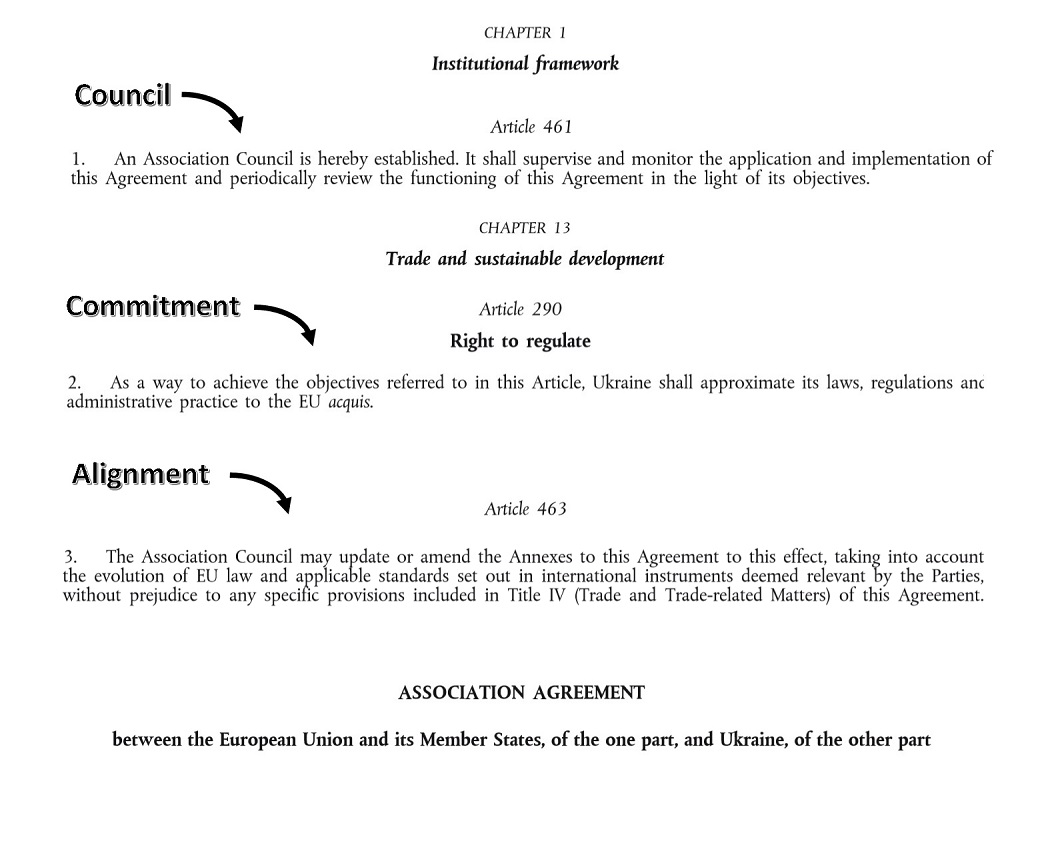
1. This is not correct by @BBCRosAtkins (Thread)
https://twitter.com/BBCRosAtkins/status/1337172625638916096
2. Firstly, the EU shared rules in the deal they did with Canada, they just did it in a different way.
3. Canada were required to sign up to several car regulations in UNECE.
4. The EU has, at minimum, 48% of the vote on any one of those regulations. With CETA, Canada agreed to share rules where it can be outvoted, and most likely will be.
5. The alignment the EU is proposing for the UK is different. It's based on dynamic alignment which is about approximating rules.
6. Dynamic alignment isn’t included in Canada and Japan deals, but as I keep continue to point out, dynamic alignment has been very much alive in the EU’s DCFTA’s for some years.
7. The UK is in a position to reject those alignments and allow the EU to seek a level playing field with more traditional methods.
8. There was, therefore, more loss of sovereignty in CETA than the dynamic alignment the EU want to use in the UK deal.
9. Contrary to what the report claims: Dynamic alignment of Government subsidies, Workers’ rights, and Environmental are all in the Ukraine or the Georgia deal, or both.
10. It is also not 'harsher' than what the EU has asked before.
The EU demanded more alignment from Ukraine for 99% tariff reduction than it is asking from the UK for 100% tariff reduction.
The EU demanded more alignment from Ukraine for 99% tariff reduction than it is asking from the UK for 100% tariff reduction.
11. Not that there is no problems.
The EU has never used dynamic alignment purely for LPF and outside the context of the DCFTA, and as @DavidHenigUK points out, it appears to need ironing out.
The EU has never used dynamic alignment purely for LPF and outside the context of the DCFTA, and as @DavidHenigUK points out, it appears to need ironing out.
https://twitter.com/DavidHenigUK/status/1337326902206488577
12. But new provisions are a part of the trade deal landscape. It is not unprecedented for a new trade deal to have something unprecedented in it. It is the norm.
13. If Liam Fox didn’t foresee regulatory level playing field in 2017, then there are serious questions to answer, because the EU laid their intention out at the beginning of 2017.
Here is Peter Mandelson at the time explaining that.
Here is Peter Mandelson at the time explaining that.
14. Far too much is being made of how these are new (there are always new things), it goes beyond that has been asked before (it doesn’t), it’s a loss of sovereignty (it’s not).
15. CETA was the first ‘New Generation’ agreement, and it was intended to be the Gold standard of trade deals in 2008.
There was lots of unprecedented things in that deal.
There was lots of unprecedented things in that deal.
16. The EU asked more on services than it ever asked before and there was more sovereignty loss.
17. The fact the UK is rejecting the innovative nature of doing bilateral agreements does not bode well in how the UK will approach free trade in the future.
18. CETA was really innovative 12 years ago, but not anymore.
We can probably not expect much in terms of our future trade deals outside the EU.
We can probably not expect much in terms of our future trade deals outside the EU.
But for balance, the EU asks for a lot more, and those deals take longer. We can expect quicker deals.
They just don't seem likely to be as good.
/End
/End
• • •
Missing some Tweet in this thread? You can try to
force a refresh






